Course Description
The Art of Reading Well Syllabus
“There is only one thing that could replace a book: the next book.” – Unknown
Despite the rise of e-books and digital media in this technologically driven world, many people continue to prefer physical books for their tangible quality and reading experience. From escaping into different worlds and experiences through stories, to learning new information, developing imagination, connecting with characters, relaxing, and simply enjoying the beauty of language, books are immensely powerful and beneficial, and they will never go out of style!
In this one-semester, student-centered literature course, high school students in grades 10-12 receive a half credit of English while developing critical reading, thinking, listening, speaking, and written communication skills.
Six books are required for this course and should be purchased in advance and brought to class as needed. Internet links to short stories, poetry, articles, speeches, etc. are provided by the instructor.
Don’t worry if you’ve read some of these books before—each time you revisit them, you’ll deepen your understanding and appreciation. Returning to familiar texts can uncover new insights, expand your perspectives, and enhance your connection with the material. Through thoughtful discussion and reflection, you’ll gain a richer, more nuanced view of the themes and ideas that make these books timeless.
Because discussion is a primary component of this class, it is helpful for all students to acquire the same version of each book. It is important for the students to be “on the same page,” so please refer to the ISBN numbers in the Required Texts tab above when ordering. Amazon links have been provided as well.
Students will be annotating their books. If, however, a student prefers not to mark his/her book, Post-It Notes may be used instead.
Students should read How to Win Friends and Influence People by Dale Carnegie prior to the first class session and be prepared to discuss. The themes explored in Carnegie’s book will guide and influence the other literary discussions in this course.
Course Structure
Students will:
- Read assigned literature from a variety of literary and non-literary genres, including informational texts, classical and contemporary prose and poetry, and literary fiction and non-fiction.
- Respond to literature through dialectical journaling and class discussions.
- Relate to literature by crafting open-ended, thought-provoking Socratic questions.
- Reflect on literary themes through active participation in weekly, student-led discussions with peers in which students analyze, synthesize, and evaluate information to contribute meaningfully to the conversation.
- Review and share favorite pieces of literature with peers.
- Report on current news articles relating to topics/themes discussed in class.
- Relay, through a culminating literary project, new insights gleaned in the class
Participation is an essential and required component of this course. Students take on active roles during Socratic discussions to facilitate a thoughtful exchange of ideas around a text or topic, which allows for deeper engagement and critical thinking and listening among all participants, rather than relying solely on the teacher to direct conversation.
Written assignments in this course include journaling, responding to thought-provoking discussion questions and essay prompts, group presentations, and book projects.
Most class sessions follow this schedule: (except during presentations)
- Assigned Reading Discussion (30 minutes)
- Theme of the Week Current Events Sharing (Students share articles related to the theme of the week.) (15 minutes)
- Theme of the Week Book Reviews (Students share their favorite “reads” related to the theme of the week.) (15 minutes)
Who should enroll?
10th-12th grade students and mature 9th grade students who enjoy reading and discussing literature are welcome and encouraged to enroll! Ninth grade students will be considered with prior instructor approval. Please email Mrs. Cook: ncook[at]aimacademy.online.
Basic Supplies:
- a composition notebook or spiral for notetaking and journaling
- highlighters–yellow, green, blue, pink, orange
- Post-It Notes (various sizes, shapes, colors–yellow, green, blue, pink, orange)
- pen/pencil
Technology Requirements
- High speed, broadband Internet
- Sound card and microphone (for live sessions)
- Streaming video capabilities to watch recorded lectures
- Microsoft Word and PowerPoint and Google Docs and Slides are extremely helpful. *If using a different word processing program, the document should be saved or exported as a pdf in order to submit it on Canvas. Downloading the free CamScanner app is encouraged for submitting multiple pages as one PDF.
- Printer with ink and paper
A variety of apps and online resources are utilized in this class to enhance learning, engage students, and communicate effectively with students and parents. Student privacy and safety are important to Aim Academy. We carefully review the privacy policy of each website/app and secure parental permission before asking students to create an account for an online resource outside of Canvas.
Evaluation and Feedback
Asking students to demonstrate their understanding of the subject matter is an integral part of the learning process. Comprehension of literature is assessed formally and informally through live class discussions and through written responses such as journal entries, multi-paragraph essays, and exams. Students are also asked to demonstrate mastery and application of course material by completing periodic presentations and a culminating creative project.
Providing consistent feedback is imperative for student growth and success. For this reason, I provide detailed comments on all assignments.
My role as the instructor is to:
- Facilitate weekly discussions where all students are encouraged to participate and share their valuable literary insights.
- Provide timely and meaningful feedback during class discussions and on journal assignments.
- Guide the development of critical thinking, analytical reading, and oral communication skills.
- Mentor students, helping them make connections to the literature they read.
Communication
Communication is an essential component of any educational endeavor. With that in mind, I encourage all of my students to contact me whenever they need assistance with an assignment, and I make it a priority to promptly respond to student inquiries. I also send weekly “wrap-up” announcements outlining the learning objectives accomplished in class as well as reminders about upcoming assignments.
Parental inquiries are welcomed and encouraged as parental involvement is essential to student success. To best serve parents, I have established “office hours” on Friday mornings from 9:00–11:00 AM (ET) for responding to emails and phone calls. I consider it a great privilege to be able to walk alongside parents and assist them in educating their children.
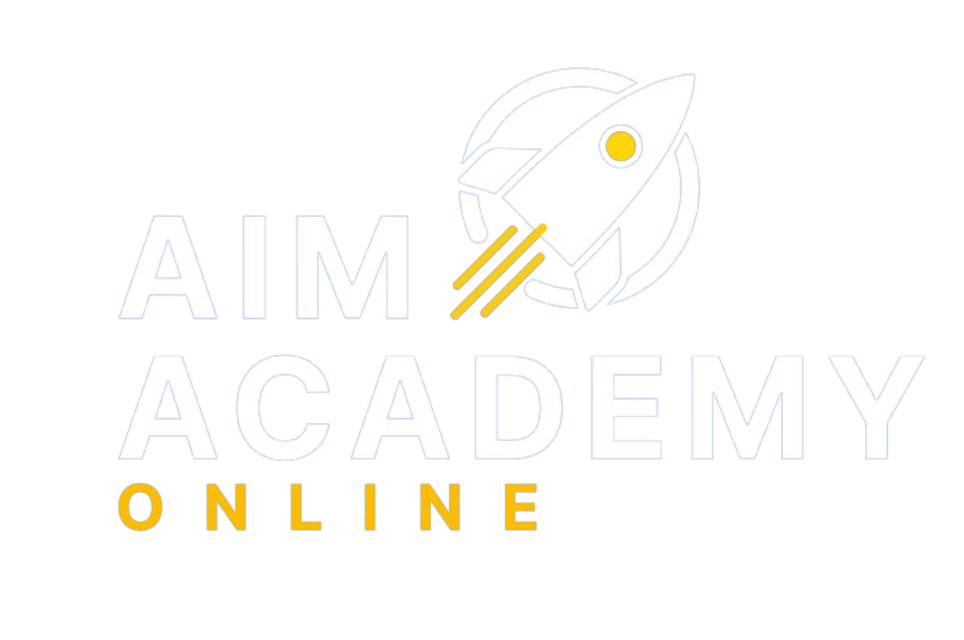
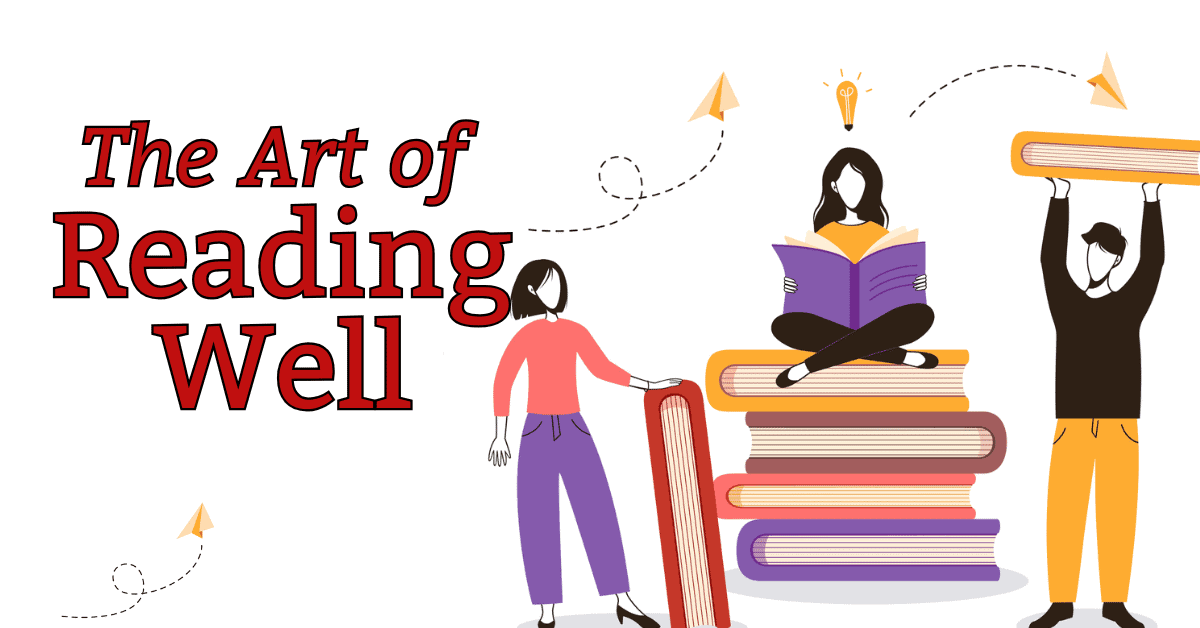

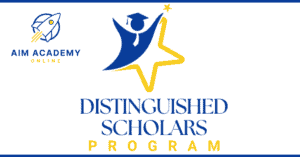

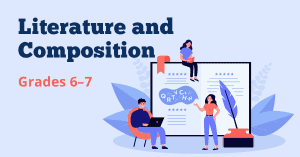
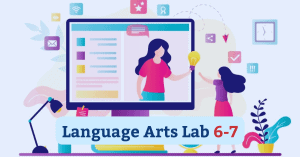
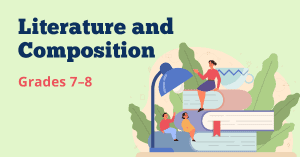
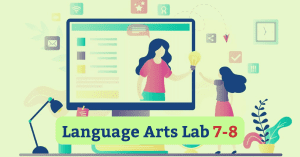
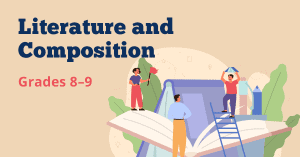

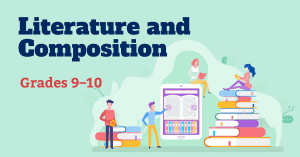


Reviews
There are no reviews yet.